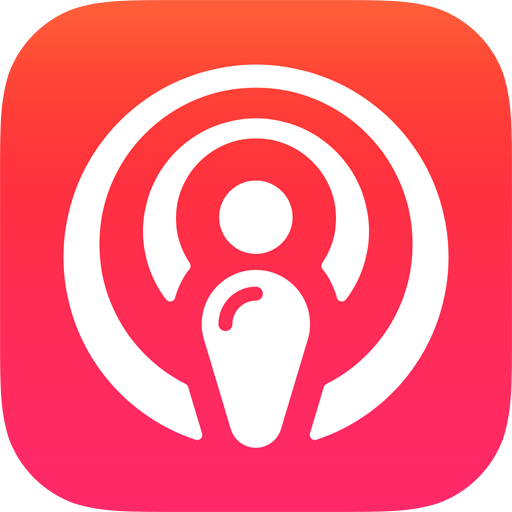December 15, 2019
From Start-up to Sustainable Success: Lessons Learned from Our First 10 Years
Throughout 2019, the Foundation has been celebrating its 10-year anniversary and in this post we reflect on the journey that led us to this milestone. As we’ve highlighted our success stories and spoken to our staff, community members, and partners, we wanted to share some of the things we’ve discovered since the Foundation was first established. So, here are 10 key things we’ve learned about creating a successful organization along the way:
1. Put your people first
While salaries matter, we believe—and research supports—that people are more likely to stay in jobs if you invest in their learning. From offering regular professional development opportunities, to an annual off-site retreat, to providing premium health insurance coverage for all, we try to demonstrate a clear commitment to the well-being and development of our team. This includes doing our best to transparently communicate the Foundation’s policies, procedures, and goals to facilitate employee success. When your team feels you care, they will give their best in return.
2. Engage, listen, and learn with those you serve
Beyond our staff, the Ras Al Khaimah community has always been the Foundation’s biggest asset. It is a source of inspiration, ideas, and local knowledge. While it’s not always easy to do, we have prioritized taking the time to listen and learn from the people we serve and engage in our efforts – educators, students, artists, local government, academics, and partners. This strengthens the relevance and potential impact of our work while building a strong network of individuals and organizations who have become our biggest allies and advocates.
3. Hire on mission
Who you choose to employ matters. Like many start-ups, we’ve learned through experience that hiring decisions are more art than science. A great candidate on paper may simply not be the right fit for a team or the organization. We’ve found staff performance and retention to be highest among those whose personal values align with the values of the Foundation and its mission. Attitude is everything. Some things are simply not trainable, and it is better to keep positions open than to hire the wrong person.
4. Start with yes...
In the early days, we said yes to everything – even when we probably should have said no. However, saying yes opened doors to new relationships and ideas that are now core to our work. We may have missed important opportunities had we simply decided we didn’t have the time, resources, or energy to pursue the possibilities that presented themselves.
5. …and then recognize when it’s time to set boundaries.
As the Foundation grew into its mission, the focus of our work became clearer. Our goal has always been to offer support and develop capacity where gaps exist, not to replicate or take on the mission of other organizations. As we gained perspective on the Foundation’s unique position and value proposition, there came a point where we had to start setting boundaries. We couldn’t (and shouldn’t) try to be everything to everyone. We realized we don’t have to always say yes; sometimes the best course of action is to manage expectations and facilitate connections to other organizations and resources.
6. Be generous
Share. Share knowledge, share time, share connections. We accomplish so much more when we work together and support others who are also seeking to develop their communities. As a Foundation, we’re committed to transparency and building the capacities of individuals and organizations. Our open-access research publications, willingness to speak honestly about our experiences, and taking time to make introductions across our network are a few examples for how we seek to embody generosity. This approach has helped build the Foundation’s visibility and reputation in meaningful ways that set us apart.
7. Calculated risks create opportunities
You cannot innovate without taking risks. Going against conventional wisdom, piloting new ideas, or simply deciding to do things differently promotes growth and creativity. Listening to our community and using research to inform our decision making has helped us find our niche and remain relevant in an ever-evolving world.
8. Be Curious
Curiosity and openness to learning inspires new ideas and connections. Often, we don’t know what we don’t know, but reading widely, speaking to different people, and exploring our community helps us gain new understandings to bring to our work. Lifelong learning doesn’t just apply to individuals; it applies to organizations too.
9. Take the long view
There is a difference between reactive and responsive approaches to managing change and the unexpected. While being reactive often allows you to address immediate issues – and is sometimes the only option available – it may not position you for success in the future. We have sought to be responsive instead, asking ourselves what really matters in order to reframe difficult situations and consider potential consequences in the long run. This has helped us remain adaptable, prepare for things beyond our control, and maintain the trust of our stakeholders and partners even during challenging times.
10. Make time to celebrate and recognize the journey
We are an action-oriented Foundation, and it can be easy to move from one project to the next when things are busy. However, we’ve found it is important to intentionally make time for celebration and to recognize success. It helps staff and stakeholders share in accomplishments while deepening everyone’s commitment to common goals. Our 10-year anniversary celebration has been one of powerful success stories, providing us with renewed energy for making a positive impact on the community in Ras Al Khaimah and the UAE each and every day during our next 10 years.
Dr. Natasha Ridge has been the Executive Director of the Al Qasimi Foundation for the last 10 years, and Caitrin Mullan is the Arts & Engagement Director.

